This story at a glance
- Starting in March, no one in Lubbock will purchase electricity from Lubbock Power & Light but instead will choose a power provider.
- January 5 is the first day to choose from 34 companies.
- You can meet companies face-to-face during a series of “shopping fairs” at the Civic Center in January and February.
- Be prepared to pay a deposit. Also, watch out for contract cancellation fees.
- Be careful. This story will give you important information on how to avoid both scammers and sticker shock.
At a crowded town hall meeting Monday in the Maggie Trejo Supercenter, people heard the timeline is “locked down” as they prepare to change how they pay for electricity service in Lubbock. Warnings about price, customer service and avoiding fraud took center stage. Also, customers must either pay a deposit or know how to qualify for an exception.
To prepare for this big change, Lubbock Power & Light already switched 70 percent of customers from one power grid to another. The remaining 30 percent will switch December 9-11. Shortly after that’s done, the process of shopping for a new power provider begins.
“This is real,” said Matt Rose, LP&L public affairs & government relations manager, to a crowd of 150 or so people. The timeline was previously delayed as federal regulators wanted to take one more look. But now the calendar is filled out.
“We will still exist,” Rose said. But LP&L’s role will be limited to one thing. “We will be the delivery system for the electricity you choose.”
That means you must get someone else to provide your electricity, not LP&L. Starting on January 5, you can sign up for electricity from one of 34 providers. But even now, there are things you can learn.
‘There is still denial’
“We need to start getting ready,” Joel Ivy, Lubbock’s director of electric utilities, said to Lubbock Lights a few days before the town hall. “There’s still denial and people really aren’t sure what it is and how to get ready.”
The “it” in this case means the transition to customer choice.
“This is where we need help from news outlets,” Ivy said.
The next big step is a physical switchover from the Southwest Power Pool to ERCOT, Ivy said. ERCOT is the Electric Reliability Council of Texas which covers most of the state but not the Panhandle. Most LP&L customers are already on ERCOT. In December, the remaining 30 percent of LP&L customers will experience a temporary power outage while the switch is made.
The outages will be spaced out across a Saturday, Sunday and Monday – typically lasting 15 minutes but it could be 30 minutes.
“ERCOT has already given us fair warning. If we’re under a winter advisory or some kind of inclement weather, then they might ask us to postpone. If it doesn’t work out that way, it doesn’t kill us,” Ivy said.
Ivy has a 17-point checklist. His goal is to stand before the city council on December 12 and say, “We’re 100 percent ready to go.”
That’s the physical switchover with power lines and power grids. The financial and billing switchover comes later.
“We’ll start transitioning to their retail electric providers on March 4th and by April 2nd we should be complete,” Ivy said.
Timeline of events
- Dec. 9-11: Roughly 30 percent of LP&L customers will be switched from the Southwest Power Pool to ERCOT.
- Dec. 12: LP&L will certify to the city council everything is 100 percent ready to go.
- Jan. 5: Customers can shop for a power provider.
- Jan. 5: First “shopping fair” at the Civic Center to meet electric provider representatives.
- Jan. 6: Second shopping fair at the Civic Center.
- Jan. 22: Third shopping fair at the Civic Center.
- Jan. 23: Fourth shopping fair at the Civic Center.
- Feb. 10: Fifth and final shopping fair at the Civic Center.
- Feb, 15: Deadline to sign up with a provider.
- Feb. 16-29: Blackout period; those who did not sign up will be assigned to one of three default providers.
- March: Last LP&L bill.
- April: First bill from your new electric provider.
Saving money or spending more
Electric customers can save money, Ivy said.
“They will have the opportunity to if that’s what’s important to them,” Ivy said. However, maybe some people want to prioritize customer service or protecting the environment.
“They can say, ‘I want to go 100 percent renewable,’” Ivy said. Customers choose for themselves, he said. “Want to be able to look at it that way as opposed to just simply, ‘Is it a cost savings?’”
Rose told the crowd at the Maggie Trejo Supercenter, “Every single one of these providers has to offer you a fact sheet.”
That’s how you will know the price, fees and commitment to wind or solar energy.
“And this fact sheet, there’s no fine print. And it’s got to be apples-to-apples as much as it can possibly be, so the customers know exactly what they’re signing up for,” Rose said.
“It’s going to explain to you what all the different charges are,” Rose said while pointing to a sample fact sheet. “That’s where you’re going to see your contract length is going to be spelled out.”
You can expect a cancelation fee for breaking contracts early, Rose said. There might be a fee for calling customer service. The deposit policy should also be disclosed on the fact sheet.
LP&L cannot recommend one company over another. However, LP&L can offer consumer advice.
“You’re going to want a fixed plan,” Rose recommended. That means the price is more reliable compared to a variable plan.
“The variable is something that month to month your price could change,” Rose said.
Variable plans, Rose said, are regulated more tightly than they used to be. But he still recommended a fixed rate.
Civic Center ‘shopping fairs’
“We’re inviting all of the reps that are authorized to do business to come in to take up booth space,” Rose said, referring to the shopping fairs listed above.
“I’ve told these reps, ‘I’ll give you the space. I’ll provide the booth and the curtains and everything that you need for privacy. You bring whatever you need to win over folks,’” Rose said.
LP&L compared this to buying a cell phone plan. You want to look for price, features, length of contract, penalty for canceling early and the quality of customer service.
For electric providers without full customer service, will there be a service charge for calling the company with a problem? Rose said to find out before signing up.
Figuring out the cost starts with looking at the rate. For example, one provider advertised 13 cents per kilowatt hour.
LP&L said a typical Lubbock home uses 750 kwh each winter month and 1,400 kwh for each summer month.
Rose said to use 1,000 for easy math and multiply it by 13 cents. The cost would be $130 per month if those numbers are right for your home.
List of gotchas
- Figuring out the price
- Cheap price vs commitment to renewable energy
- Cheap price vs good customer service
- Getting charged for a customer service call (depending on the plan)
- Contract length in months
- Cancelation fee
- Fixed rate or variable rates
- Not singing up (default provider)
- What if I can’t pay?
- Late fees
- Disconnect/reconnect fees
- Each provider might offer more than one plan.
Avoiding gotchas
Rose recommended asking questions and knowing your rights. To help out with that, the city handed out copies of a customer shopping guide.
As of Thursday, prices for Lubbock were not listed on the state’s powertochoose.org website. Rose said you can enter a Midland zip code such as 79701 to get a sneak peek at plans and prices.
LP&L published a list of approved providers for Lubbock.
No doubt, someone will ignore this process and not sign up with anyone, Rose told the crowd.
“You will be automatically assigned to one of these three providers. They will take you on for 90 days,” Rose said. The price will not be the highest or the lowest but somewhere in the middle.
Those three providers are Reliant, TXU and Octopus.
“We don’t want anybody’s lights going out as we make this move,” Rose said.
Questions and concerns from the crowd
Several people wanted assurance they could talk to a real person.
“I will not talk to a computer,” one woman said.
Others wanted assurance they could pay their new providers with cash or a credit card. Rose said companies should be able to take a cash payment at a Western Union station.
People wanted to know what happens if there’s a problem.
“If you have an issue with your provider, your recourse is the Public Utility Commission,” Rose said.
During the meeting, Rafael Gonzalez asked what will happen to the power plants LP&L owns.
“We’re in the process of completely getting out of that business,” Rose said in response.
One power plant on the Slaton Highway was shut down in 2017. He was not specific about the fate of one power plant along Interstate 27 and another on Texas Tech campus.
After the meeting, Gonzalez spoke to Lubbock Lights, expressing concern about not having local help.
“People are used to going downtown – the Lubbock Power Light office – and paying their bills and what-have-you,” Gonzalez said.
He too is concerned some Lubbock residents do not own computers and may have trouble reaching out-of-town customer service without one.
Mark Lawson asked even before the change, how many people get their power cut every month in Lubbock for not paying?
Rose did not have the answer but named a few local agencies which can help with utility bill assistance. However, it’s important to get help before the power is cut off, he said.
“They have restrictions that says they can’t pledge toward accounts that have been disconnected,” Rose told the crowd during the question-and-answer session.
“Just don’t ever wait until you get disconnected, because then your options go down to almost nil,” Rose also explained.
“I don’t know what the solution is,” Lawson told Lubbock Lights after the meeting, “But you can’t live without electricity.”
He wishes something more could be done for low-income residents, and he was not satisfied with the answer he heard during the town hall.
“I just think we could provide a safety net,” Lawson said. “If you have an oxygen tank or something that needs electricity … you can’t be shut off.”
Unpaid bills
For the startup of competition, LP&L must have all the meters turned on, even if people were disconnected for non-payment. The unpaid bill does not go away, and LP&L can still pursue collections. However, everyone must be allowed to choose a provider.
But after that, if you get disconnected for non-payment, it will get harder to just move on with another company. Each provider gets to see if you have an unpaid balance. You might get rejected or made to pay a higher deposit.

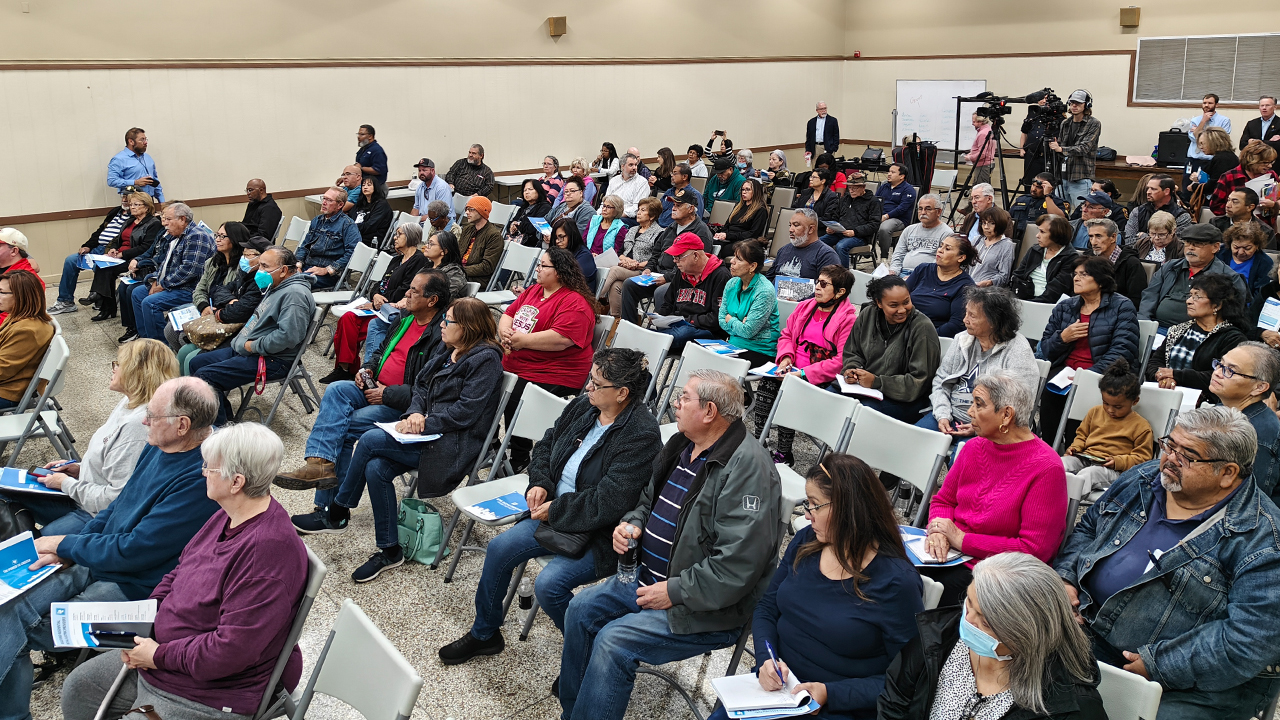
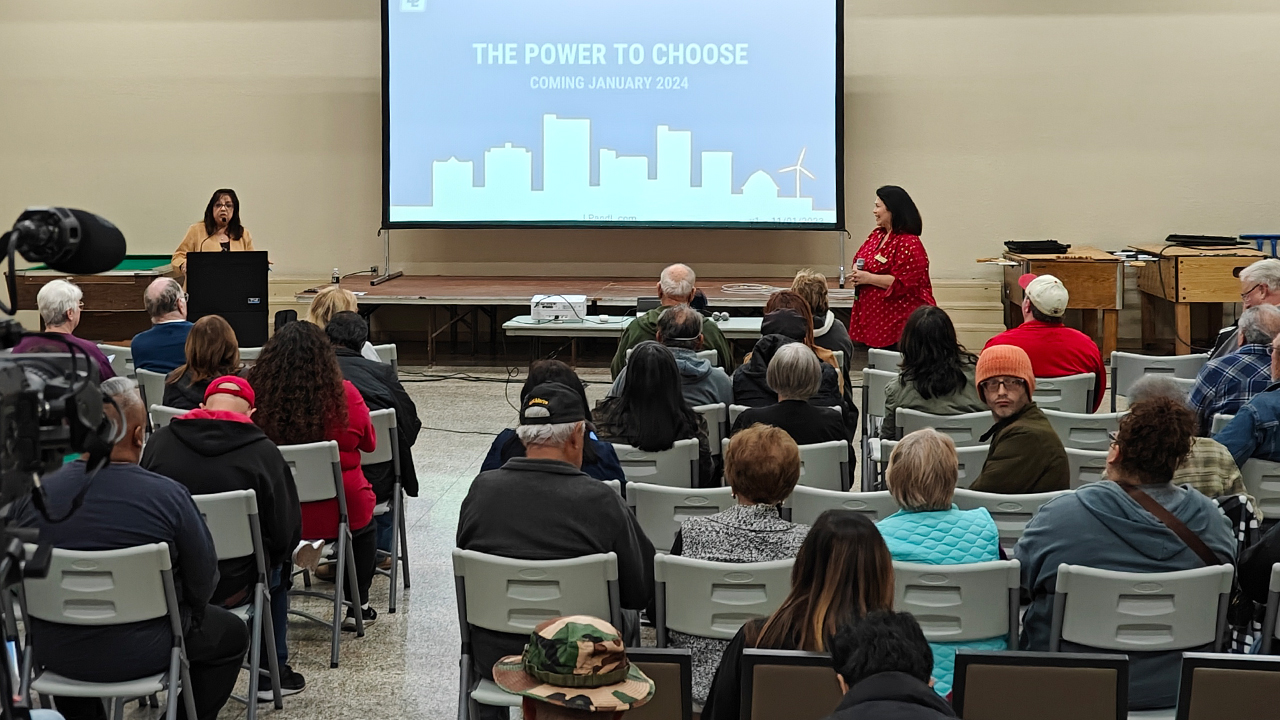
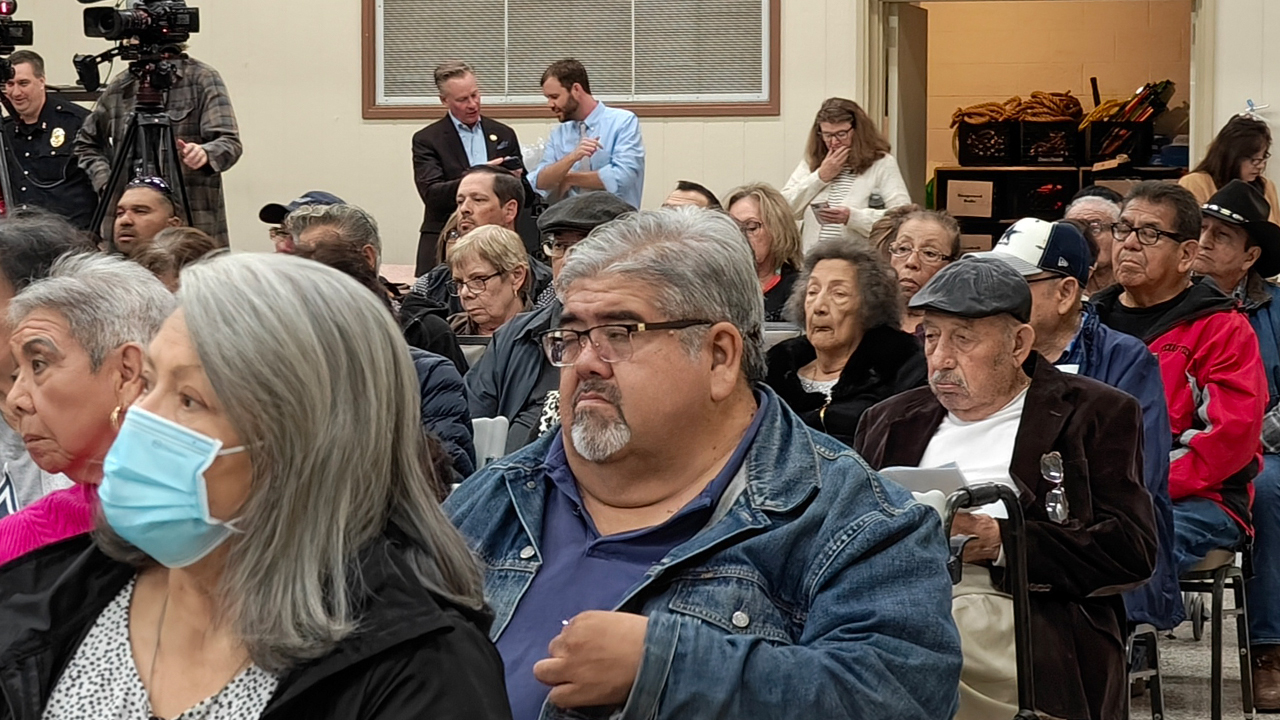
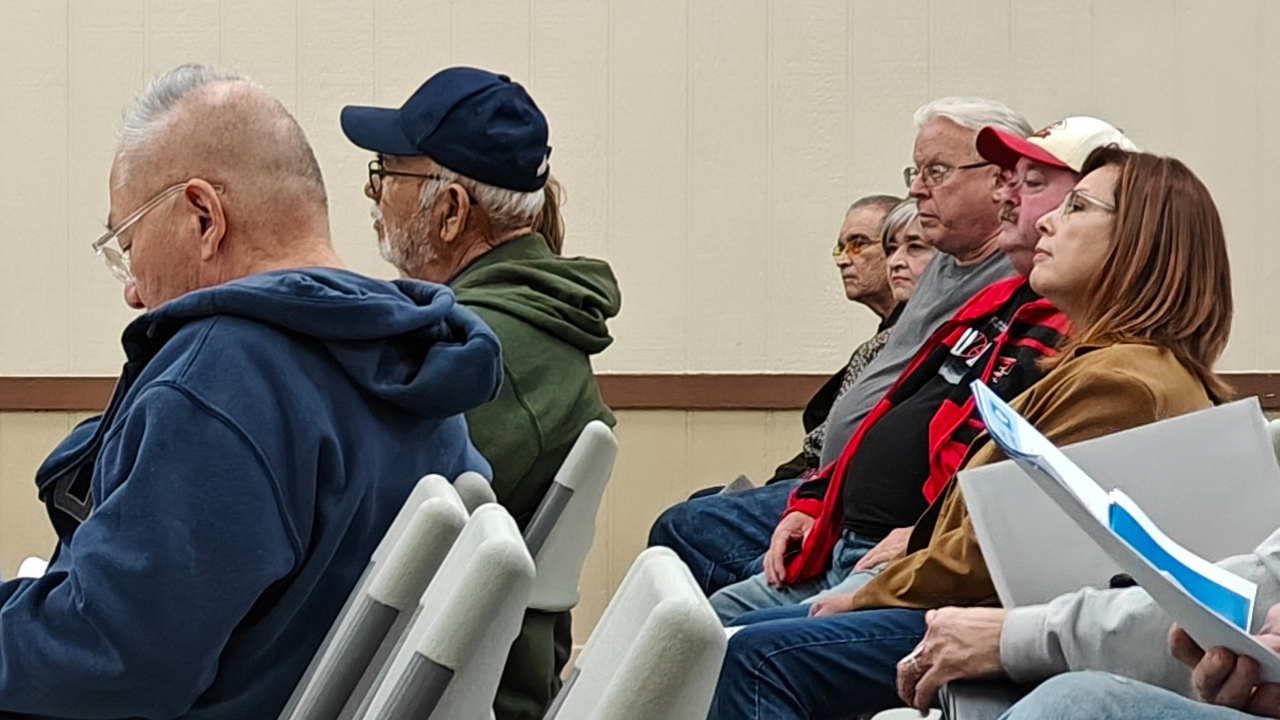
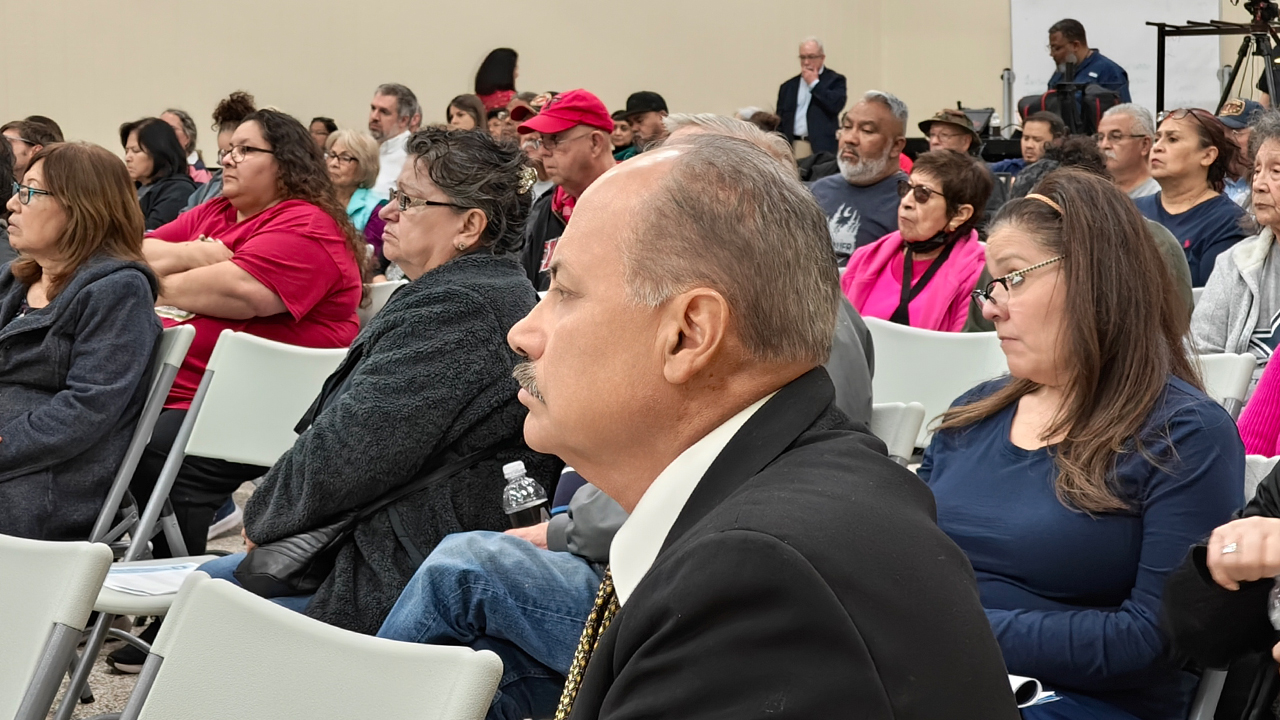
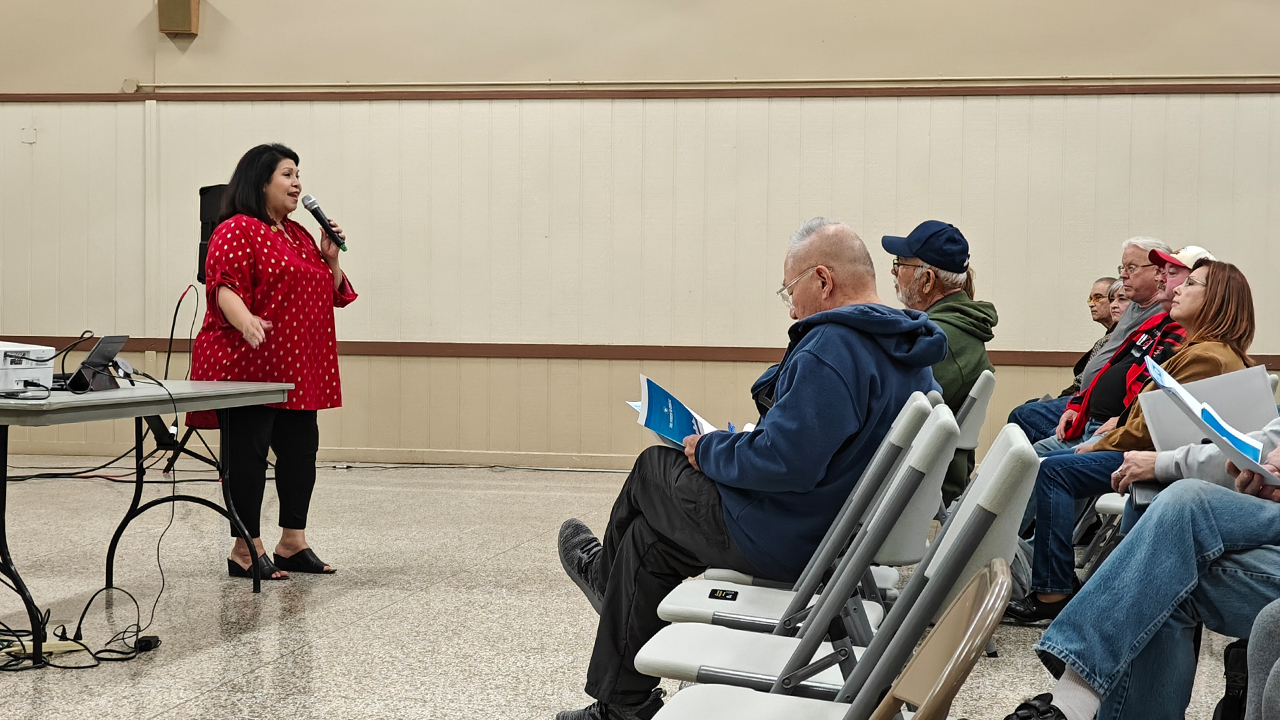
 Facebook
Facebook